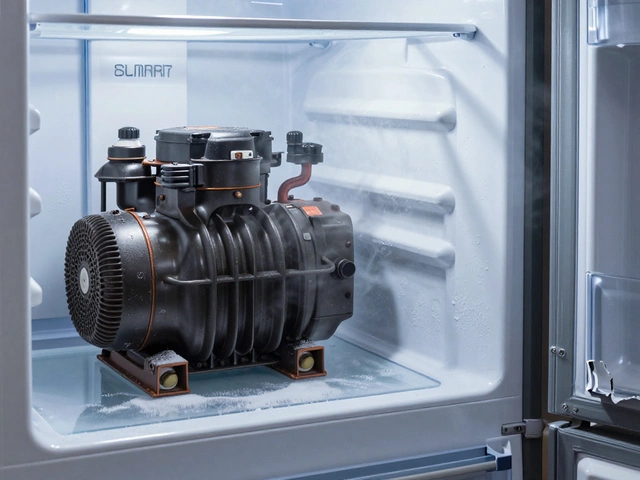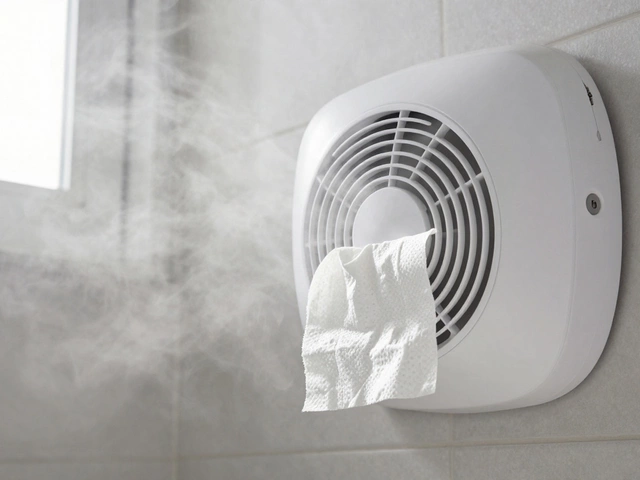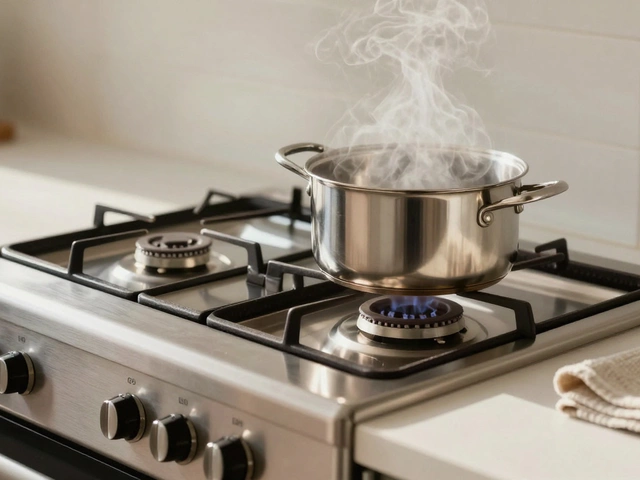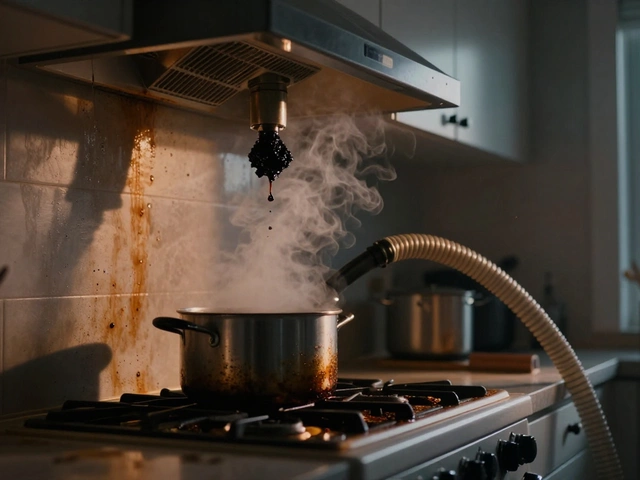In today's fast-paced world, the technological landscape is ever-evolving, posing interesting questions about how we classify the devices we rely on daily. Among these is the laptop—a powerful, versatile machine that has found its way into many homes and offices.
But is it right to call a laptop an appliance, or is this oversimplifying its role? Unraveling this question invites us to delve into the characteristics that define an appliance and see if laptops match them. By comparing laptops to traditional appliances like refrigerators and ovens, we can better understand their place in our lives.
Moreover, the service and maintenance of laptops provide another lens through which we can evaluate their classification. As we explore these elements, we'll gain insights into how our view and use of technology continue to evolve.
- Defining Appliances and Their Characteristics
- Laptops' Role in Modern Households
- Comparisons with Traditional Appliances
- Service and Maintenance of Laptops
Defining Appliances and Their Characteristics
An appliance, by common understanding, is a device or instrument designed to perform a specific task or function. These objects are present in our homes to aid in domestic chores and daily life. Appliances are typically tangible devices that provide a mechanical service and are fueled by electricity or another form of energy. This category includes a range of items from kettles and toasters to dishwashers and washing machines. Most importantly, they are often expected to fulfill a utilitarian role, providing convenience and efficiency in routine tasks. Historically, when we think of appliances, we visualize sturdy, practical machines that perform straightforward functions to assist us in maintaining an organized and comfortable living environment.
The essential characteristics of an appliance include functionality, reliability, and longevity. Functionality ensures that the appliance performs the task it was designed for efficiently. Whether it is cleaning clothes, storing perishable goods, or cooking food, the appliance should excel in its designated role. Reliability is equally crucial, as users expect consistent performance under regular usage conditions without frequent breakdowns or the need for significant maintenance. Moreover, many appliances are built to last, with a lifespan often measured in years, if not decades. Interestingly, some appliances, like refrigerators, have been noted to function well beyond their intended life expectancy, oftentimes passed down through generations as a testament to their durability.
In an increasingly digital age, the lines between traditional appliances and technological devices are becoming blurred. While classic appliances are mostly mechanical and simple in their operation, newer entrants into the category incorporate smart technologies and enhanced capabilities. This shift has broadened the definition of what an appliance can be. Yet, one could argue that as long as the core characteristics of functionality, reliability, and longevity are fulfilled, the device can be considered an appliance.
"Technology is anything that wasn't around when you were born." — Alan Kay. This sentiment invites us to ponder whether the classification of an appliance must evolve as technology advances and integrates into the fabric of daily life.
With this thought in mind, one can't ignore the rapid changes in consumer expectations. People now look for devices that not only aid with basic tasks but also align with lifestyles that prioritize connectivity and smart solutions. The integration of Wi-Fi, sensors, and programmable functions into traditional appliances signifies a major shift in their conceptualization. These smart appliances interact seamlessly within a digital ecosystem, offering functionalities beyond their primary tasks. Such advancement stimulates a debate about whether these high-tech gadgets feed into the original definition of an appliance or stand apart as a new breed of useful, connected devices.
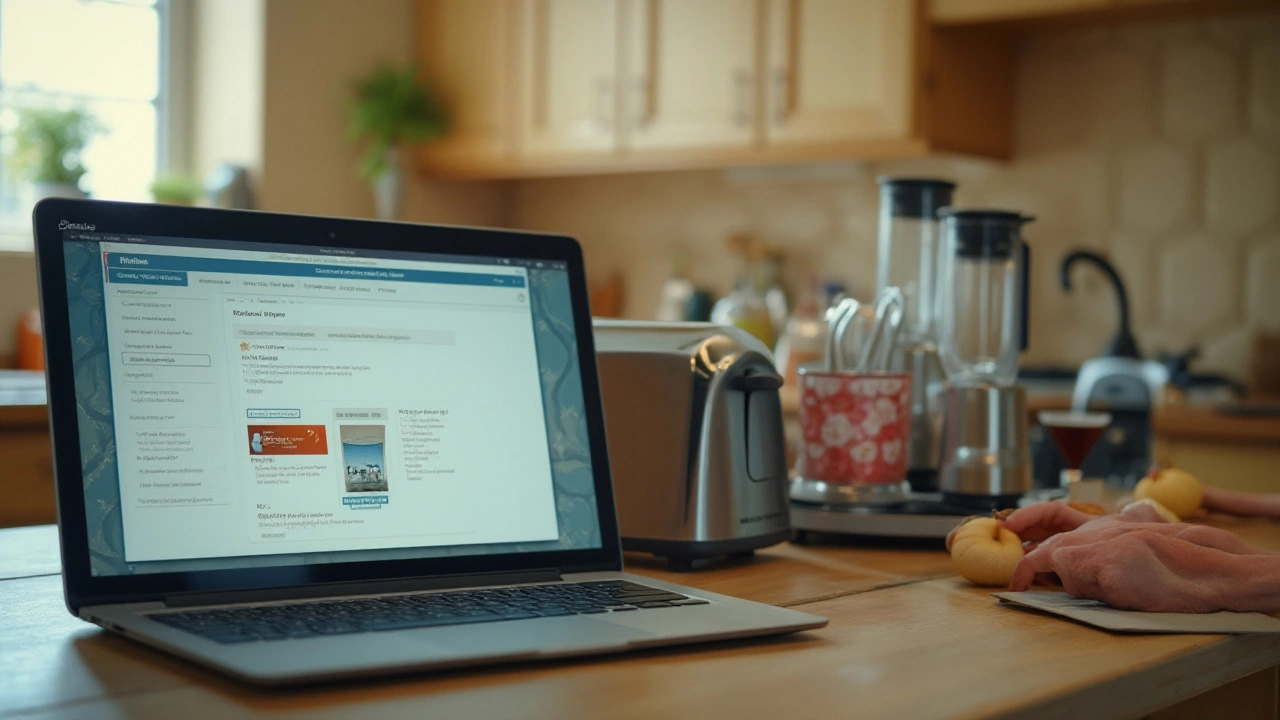
Laptops' Role in Modern Households
In an age where digital solutions are seamlessly woven into the fabric of daily living, laptops stand as a cornerstone device in countless households. Unlike the television, which revolutionized domestic leisure by creating a shared experience, the laptop personalizes that revolution, providing a unique platform for individual engagement. From work and education to entertainment and home management, the flexibility and portability of laptops have transformed how we interact with technology at home. They serve as gateways to online learning platforms, allowing both children and adults to access vast educational resources from the comfort of their homes. This ability to learn remotely has only been further emphasized during recent global events that have showcased the laptop’s viability as an essential educational tool.
The placement of laptops often echoes their versatility. Unlike a refrigerator fixed in place, the laptop travels between the kitchen table and the bedroom desk, or even to the garden for an alfresco workspace. This adaptability is unparalleled; it acts as a communication hub just as it can be an entertainment center. Whether it's streaming a new series or connecting with loved ones across distances on video calls, these advanced devices keep families bonded despite physical separations. A quote by Bill Gates rings particularly true here:
"The computer was born to solve problems that did not exist before."In essence, laptops solve the modern challenge of versatility within a dynamic household structure by seamlessly switching roles within seconds.
When diving deeper into specifics, laptops cater incredibly well to the diverse needs of a household. For professionals, they provide a robust platform for remote work, with powerful software that enables video conferencing, document editing, and team collaboration. Meanwhile, for children and teenagers, laptops offer access to interactive educational tools that can be tailored according to individual learning styles. Additionally, they open the door to a world of creativity and innovation, granting access to creative software, tools, and communities that fuel imagination and design. These capabilities are often extended with a suite of peripherals and accessories—from wireless mice to cooling pads—that enhance the user experience, making laptops not just a separate entity but a full participant in the appliance ecosystem of the home.
The role of a laptop in the modern household is further amplified by its energy efficiency and compact nature compared to traditional desktop setups. With the global shift towards sustainability, many households prefer laptops due to their lower power consumption and reduced carbon footprint. This eco-friendly aspect is often supported by powerful batteries and energy-saving features that significantly extend use between charges. For instance, specific models are being designed to minimize power usage without sacrificing performance, appealing to a new generation of environmentally-conscious consumers. The evolution doesn't end there; innovations such as foldable screens, hybrid designs, and improved processing power further enhance the appeal of laptops as pivotal household devices.
The laptop stands at the intersection of necessity and convenience, constantly evolving to meet the broad demands of the modern age. As the digital world continues to expand, so too does the significance of this essential household device. It is the unsung hero that, in many ways, has redefined what an appliance could be, blurring the lines between work, play, and everything in between. The unique role of laptops is rooted not only in their function but in their ability to adapt day-to-day to the ever-changing landscape of life, making them indispensable in homes across the globe. As technology continues to evolve, one can only imagine how these humble yet powerful machines will further integrate into the essence of home life.
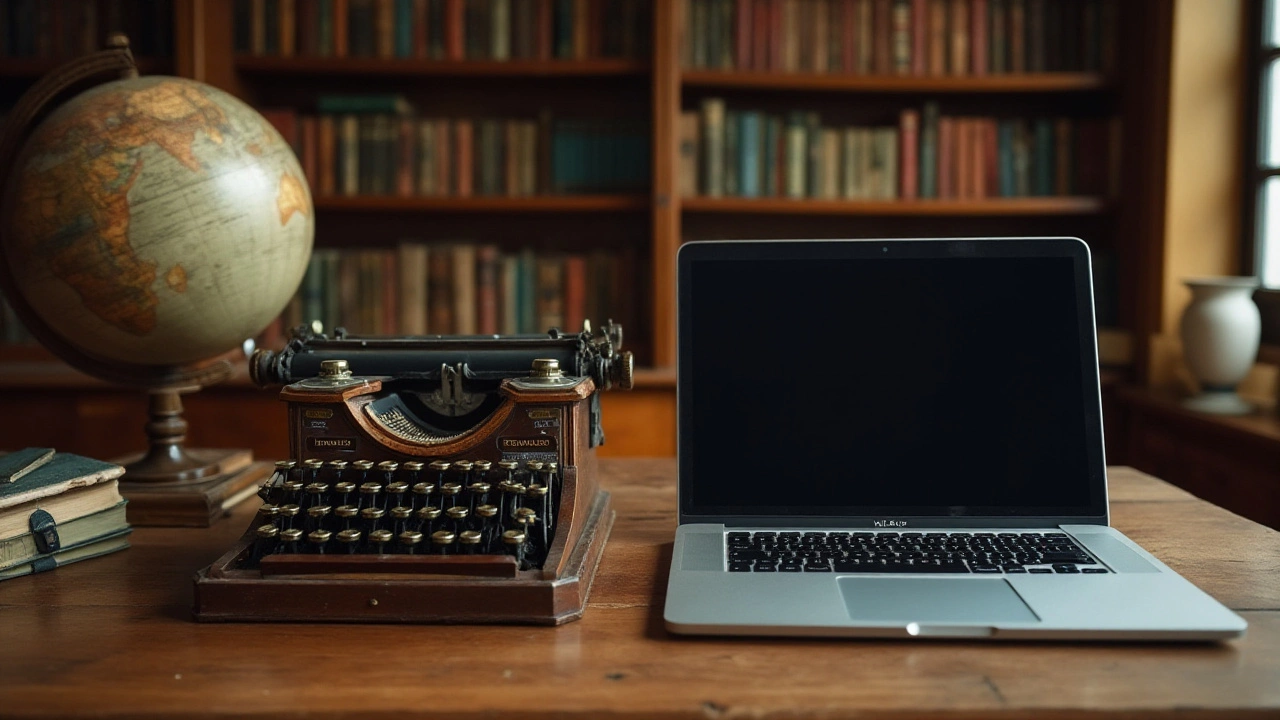
Comparisons with Traditional Appliances
When debating whether a laptop qualifies as an appliance, it is essential to consider the criteria we use for defining household appliances. Traditionally, appliances refer to electrical or mechanical machines that perform specific household functions, simplifying tasks and improving efficiency, like refrigerators, which keep our food fresh, or washing machines, which clean our clothes with minimal manual labor. Each of these devices has a clearly defined purpose that addresses a household necessity. In contrast, while laptops are packed with wide-ranging functionalities, their primary utilization, such as browsing the internet, writing documents, or watching videos, offers more flexibility than conventional appliances do. This versatility is where laptops begin to blur the line between a simple tool and a multifunctional necessity.
The nature of appliances is to perform repeatable, predictable tasks, which draw a distinct line. Comparing a laptop to, say, an oven, establishes clear differences; while an oven's function in baking or heating remains constant, the laptop's tasks dramatically differ based on the user's needs—whether it be compiling code, graphic design, or streaming content. Moreover, while traditional appliances tend to be significant in size and often immobile, intended for use in consistent locations within the home, laptops are designed for portability and convenience, embodying a different interaction dynamic between human and machine. This physical and operational flexibility further distances laptops from the static nature of traditional appliances.
An important aspect in which laptops align with appliances is the role they play in daily living. As the digital age progresses, the laptop has become a cornerstone of both domestic and professional spheres. A 2023 survey showed that 74% of households in the developed world had a laptop as part of their home setup, emphasizing its role not unlike that of a traditional appliance. Laptops are becoming nearly indispensable for daily operations, akin to the vital role of a microwave or a coffee maker in the morning routine. This trend underpins the evolving nature of what defines household essentials. As Jeff Bezos once said,
"Your margin is my opportunity," suggesting the universal adaptability of technology in our lives not limited to fixed household roles.
Furthermore, examining service and maintenance reveals common ground between laptops and traditional appliances. While a refrigerator requires regular cleaning and potentially a repair for malfunctioning parts, laptops also demand updates, anti-virus software installations, and occasional repairs to address hardware problems, which indicate the maintenance efforts common to both. This aspect shows an interesting parallel despite differing functionalities, tying them into the broader spectrum of household utilities, even if the nature of the service required varies significantly. The rise of smart home devices that merge traditional appliance functions with sophisticated tech features points towards a future where the roles and definitions of appliances might increasingly overlap with the technological advancements represented by laptops.

Service and Maintenance of Laptops
The world of laptops, with their blend of functionality and portability, makes them indispensable in many households and workplaces. But like any other device you rely on daily, they need proper care and maintenance to ensure longevity. The upkeep of a laptop doesn't just involve hardware vigilance; it encompasses software maintenance as well. To start with, regular dusting and cleaning of ventilation ports should be emphasized, as dust accumulation can lead to overheating and shortens the life of the laptop. Utilizing canned air to blow out debris is an effective measure to keep these machines running like new.
Keeping the software updated is just as crucial. Regular updates, provided by manufacturers, not only enhance performance but also shield the laptop from emerging cyber threats. Having reliable antivirus software and running periodic full-system scans safeguard your laptop against malware that could slump its performance or worse, corrupt vital data. A judicious approach recommends that users occasionally defrag their hard drives—though, with modern SSDs becoming more common, this step is becoming obsolete and unnecessary for many. Yet, knowledge about one's own system setup is key.
In today's Wi-Fi-blessed world, port security remains easily overlooked. Protecting against unauthorized access when using public networks by utilizing a good VPN service or sticking to well-configured privacy settings helps keep your data fortress-like. And let’s not forget the bastion of good battery maintenance; one must avoid letting the battery drain completely before recharging it to lengthen its lifespan. An often-cited tech nugget suggests to keep the battery levels between 20% and 80% for optimal health.
Sometimes, professional intervention is required. Skilled technicians can not only replace failing hardware components but also provide valuable advice on better usage practices. A mid-range laptop, if properly maintained, can offer comparable performance with due attention to its inner workings. Reminding us of this, a tech executive once said,
"The care we afford our devices reflects the longevity of our investments."
Given that laptops often store personal and professional data, it's highly advisable regularly to back up this information to an external device or cloud storage. While data recovery options exist, prevention is a far simpler, less stressful method than seeking retrieval post-loss. One's approach should adapt to both manufacturer-guided practices and individual usage patterns.
Thus, maintaining a laptop is about harmonizing care across various areas—from physical cleaning to software health checks, from data security to professional service. Attending to such nuances might initially seem cumbersome, but with consistency, it naturally integrates into one's routine. Whether your laptop primarily aids in office tasks, creative projects, or leisure activities, the time invested in its care will undoubtedly show through in its performance and longevity.

